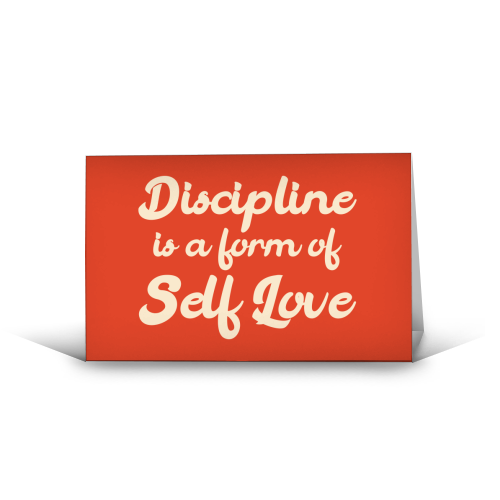
For over 3 decades, I’ve worked with individuals and families on health, nutrition, and behavior change. I’ve also been living the balancing act myself—mother, (former) wife, sister, professional, friend—while trying to keep health, fitness, and self-care from sliding to the bottom of the list. The question I’ve been asked often lately when working with women is : “How do I hold it all together?”
First of all, WHO is telling you you must hold it all together? Is it you? Is it someone who claims to be supportive? Most of the time, we are our own worst critics. The definition of stress is the gap between your expectations of yourself and your reality. Let that sink in…. Here’s the truth: you don’t “hold it all together”. Honestly, no one does, unless you have live-in help….. Today, I want to encourage you to build a mindset that values progress over perfectionism and lean into simple, consistent choices that move you forward.
The Power of Mindset: Why Progress Trumps Perfectionism
Perfectionism is one of the biggest barriers to sustainable health behaviors. Research shows that many people abandon healthy routines not because they lack knowledge, but because they feel discouraged when they can’t stick to them perfectly (Egan et al., 2011). When you change the inner conversation from “I have to do this right” to “I can take one step at a time”, you remove guilt and replace it with curiosity. And if you are not a perfectionist but somehow always feel behind or scattered, this too can reframe your perspective.
Think of your mindset as your foundation: consistent, flexible, and compassionate. Instead of demanding perfection or too many tasks—every meal tracked, every workout completed—focus on progress. Ask yourself:
- Did I choose one nourishing option today?
- Did I move my body, even briefly?
- Did I pause to rest when my body needed it?
These “micro wins” add up, and they are attainable for everyone, regardless of schedule or life stage.
Anchoring Habits: Essential Foundations for Well-being
1. Prioritize Quality Sleep for Energy and Focus
Sleep does not make you selfish; it makes you effective. Adults need 7–9 hours per night for cognitive, emotional, and physical health (National Sleep Foundation, 2015). Inadequate sleep is linked to increased cravings, poorer food decisions, and higher stress response (Taheri et al., 2004).
- Create a wind-down ritual: turn off devices 30 minutes before bed, stretch, or read something calming.
- Set a bedtime alarm: we set alarms to wake—why not do the same for sleep? Consistency trains your body to rest.
- Optimize your sleep environment: a bedroom at 65–68°F, with blackout shades, or a sleep mask to support deeper sleep cycles.
2. Hydration as a Simple Act of Self-Care
Hydration impacts energy, focus, digestion, and even mood. Mild dehydration can impair short-term memory and alertness (Wilson & Morley, 2003).
- Start your day with water: before coffee, drink a glass of water in the morning.
- Pair water with habits: every time you eat, drink a half cup of water—this adds up without extra effort.
- Flavor it up: if plain water is boring, try fruit-infused water, herbal tea, or sparkling water—no expensive drinks needed.
3. Consistent Daily Choices: Small Steps, Big Impact
Your day is a series of forks in the road. Instead of attempting an all-or-nothing overhaul, lean into tiny, consistent actions.
- Nutrition: add one serving of colorful vegetables to lunch; choose a piece of fruit instead of a sugary snack once today.
- Fitness: if 30 minutes feels impossible, try 5 minutes of brisk walking or a short stretch between tasks—momentum often grows from the smallest start.
- Self-care: pause for one minute of deep breathing between obligations—these resets clear stress before it snowballs.
Redefining Balance: Embracing Life’s Seasons
The image of a perfectly balanced scale—equal work, family, health, self-care—sets us up for frustration. Life balance is dynamic. Some weeks, your children or partner will need more from you; other times, work will pull harder. The goal is not balance in the moment, but balance over time.
A helpful reframe is to see life like seasons. In nature, no season is perfectly balanced. Some are busy and demanding; others are restorative. You can flow with your seasons too, making sure self-care is never eliminated, only adjusted.
The Role of Self-Compassion in Health Sustainability
Compassion sustains you in ways discipline alone cannot. Criticizing yourself into change rarely works long term. Compassion, however, allows you to see setbacks as part of the process. When you understand that health is not a pass/fail test, you return more quickly after challenges.
This is Your Journey, Your Progress
Holding it “all together” isn’t about perfection, it’s about practice. By focusing your core anchoring behaviors, sleep, hydration, and small daily choices, you build resilience. By embracing progress instead of perfection, you reduce guilt and open yourself up to sustainable habits one day at a time.
You don’t need to take massive steps to transform your health. All you need is the next right choice, followed by another, then another. That is how you hold it all together.
References
Egan, S. J., Wade, T. D., & Shafran, R. (2011). Perfectionism as a transdiagnostic process: A clinical review. Clinical Psychology Review, 31(2), 203–212.
National Sleep Foundation. (2015). National Sleep Foundation’s Sleep Duration Recommendations: Methodology and Results.
Taheri, S., Lin, L., Austin, D., Young, T., & Mignot, E. (2004). Short sleep duration is associated with reduced leptin, elevated ghrelin, and increased BMI. PLoS Medicine, 1(3), e62.
Wilson, M. M., & Morley, J. E. (2003). Impaired cognitive function and mental performance in mild dehydration. Journal of the American College of Nutrition, 22(2), 101–107.



